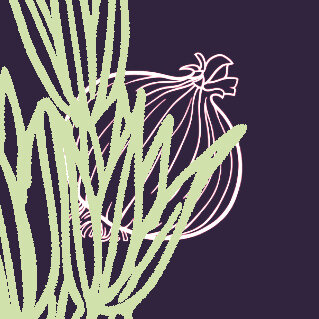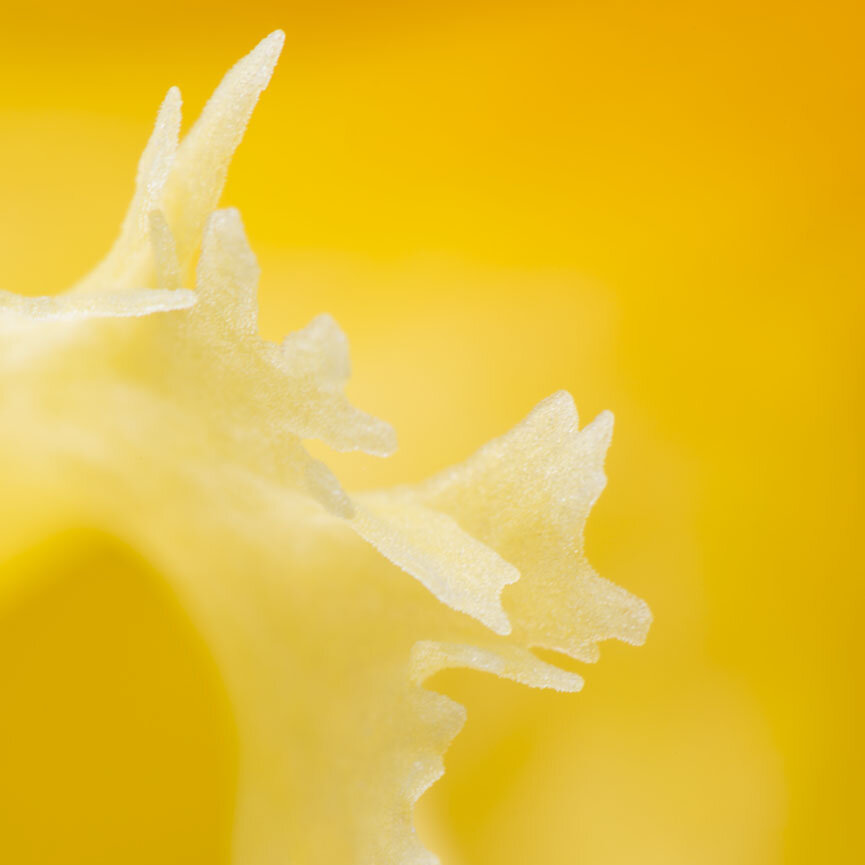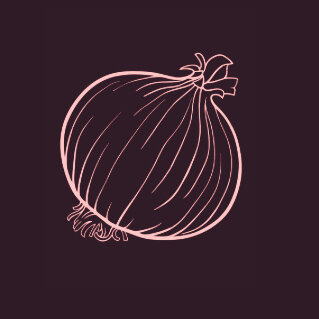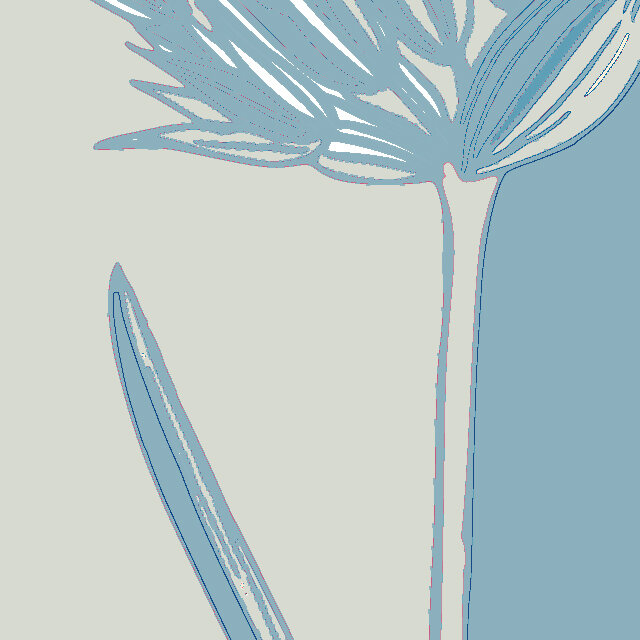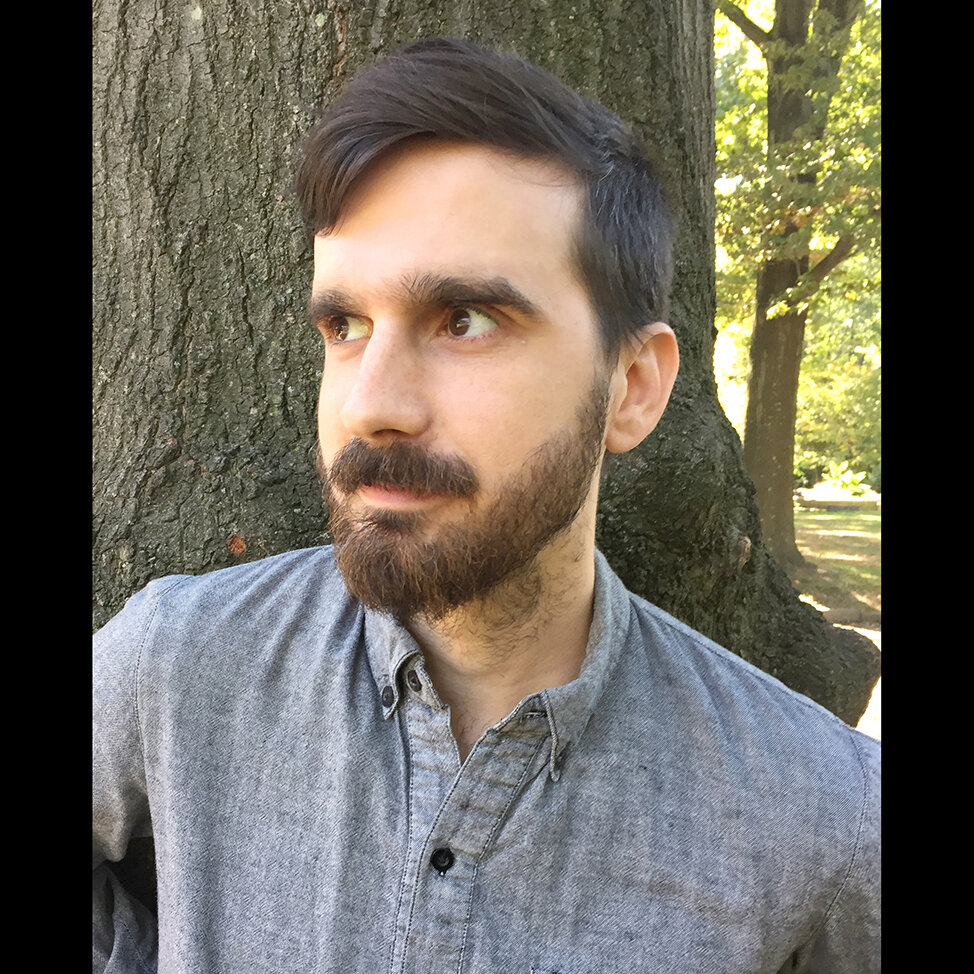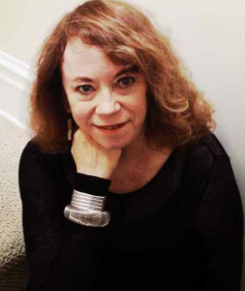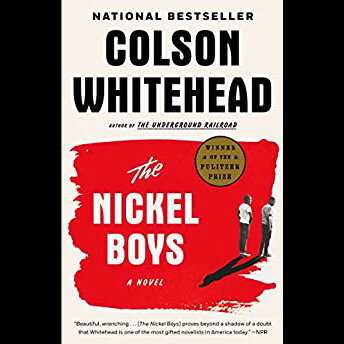The Icicle
I’m walking down Michigan Ave, backpack on, face freezing and being rearranged by the wind. I notice a WATCH OUT FOR FALLING ICE sign on my right just as soon as I slip on a patch of it. It knocks me flat on my back, folders and notebooks doing nothing to ease the pain. In a daze, I lay for a second to regain my senses before standing. In that moment, an icicle falls, tip pointed, and drills perfectly into my right forearm.
It doesn’t bleed. I don’t scream. A young businessman on the street calls 911 as soon as I’m struck; paramedics arrive a few minutes later. The ambulance takes me to the hospital, wherein the doctors tell me they’ll just have to wait for it to melt. I’m expecting them to bring out a blow-dryer, a heating pad, something to melt this ice in my arm. Instead, they send me on my way, tell me to come back once it’s melted and not a moment sooner.
Days pass with the ice in my arm, and it just won’t melt. Not even a drip. The weather warms slightly, the snow and ice on the ground slink away into sewer grates, but the chunk in me won’t follow suit. It’s begun to weigh me down, shoulders tilting, spine curving, as I try to keep balanced.
One morning, I startle awake. The ice is different, a darker shade. I reach for my glasses, arm pulsing with every movement. Holding it up, inches from my face, I see veins forming inside the icicle. Blood is coursing through it, twisting and twining just as easily as in my own body. It’s become a part of me.
“What seems to be the problem?” Dr. Nygard asks as he steps into his office, the same one I’ve already been waiting in for twenty minutes. I grip my wrist, careful not to touch the icicle, and lift my arm as much as I can, bugging my eyes at him until he says, “Oh, I see.”
“What am I supposed to do?” He’s looking over my chart in his hands as if there could be anything of use now. The last time I was here, I was nine and had a hernia, not exactly the most pertinent information.
He says nothing for a moment, slips the glasses hanging from his chain onto the bridge of his nose, and wheels his chair closer. Uncomfortably close. His right knee slides between my legs, and he leans down until the tip of his nose breathes rings onto the ice. He smells faintly of bleach and mint, as if he was cleaning his lab coat while he blew bubbles of Winterfresh; it makes my stomach twist.
“Do you mind?” I ask. He tilts his head up until our eyes meet. A single eyebrow raises before he’s back down examining the ice.
“I’ve never seen anything like this before. It’s like it’s adapted to your body. How curious. . . .” He trails off as he runs a finger along its length, from where it intersects with my arm up to its rounded end; the touch sends a shiver down my spine. The blood responds to his finger, rushing toward that side of the icicle, hungry for affection and attention. He removes his hand and the flow returns to normal.
He raises his pointer finger and taps the top of the ice, angering it. The blood rattles inside. The entire icicle twitches and shakes my arm. My vision blurs, head grows hot, a migraine sets in immediately. My other arm involuntarily swings and concaves his cheek, knocks him clean off his chair.
“I’m so sorry. I don’t—” I’m up and extending my left hand, knuckles throbbing, but so dazed it doesn’t matter. I feel like I’ve just been punched.
“What the hell’s the matter with you?” He scrambles back on his elbows, head knocking into his desk as I tower over him.
“I don’t know what hap—”
“Get out. Please.” He’s pawing at his nose, blood tie-dying the front of his fresh whites and running into the crevices of his hands. “Get help. Other help.”
“I’m sorry.” I repeat as I leave, closing the door behind me. There’s shouting from inside, cursing and anger and pain. I rush out of the professional wing, down long narrow hallways of harsh light, and into the bustle of the hospital. I maneuver toward the exit, weaving through packs of doctors and nurses, pushing past patients on gurneys. I trip over a woman in a wheelchair, crash to the ground, icicle arm first, and slide to a stop next to the door. The pain vibrates through my body, spirals up and down every part of me. My vision goes spotted and sparkling.
When the pain eases and I can see again, I realize no one’s noticed me. No one even seems to care that I tripped and fell, let alone that there’s an icicle the size of a Pringles can stuck in my arm. I brush myself off, careful not to touch it, and limp out without so much as an “Are you okay?”.
When I get home, there’s a wet patch on the top of my pant leg. The icicle drips but is the same size as it had been, melting but not melting. Now, I can feel it there, icing my blood the slightest bit, pushing itself out to my veins just as swift as it drew my blood in.
It tugs my arm across my body, over toward my left, ice tip pointed at my bruised knuckles. It freezes them until they’re numb, unable to feel the pain. My blood inside of it pushes up against the outer edge, rushing to feel the warmth of touch. I can see it snaking through the tiny tunnels of veins, rerouting as if lost in a maze and choosing a new path. The cooling feels nice, calm. Like all those times my mom brought me an ice pack as a kid. It’s involuntary on my part, the icicle controls my arm and makes the healing so, but it’s just as personal and sincere. There’s a moment where I’m almost happy to have it there. Almost.
Two weeks now that I’ve been stuck with this icicle. It’s made my daily life a hassle in every way possible. The boiling hot showers I normally take have turned icy, cold enough to keep the icicle happy and turn every part of my body as frigid as it is. I’ve stretched out all the right sleeves of my jackets; each looks like a bell bottom pant leg now while the left sleeves are still fitted. It makes me look ridiculous. I’ve shattered my phone screen, not enough feeling in my right hand to hold it without dropping. I’ve had to essentially become left-handed; writing pen to paper has been avoided at all costs.
Yesterday, I spent hours testing out ways to get rid of it, but I felt so lightheaded every few minutes, I had to lie down. It was like all the blood had left my body, been taken in by that leech on my arm. The more I try to get rid of it, the more it steals from me, holds for safekeeping in its veins.
A list of methods I employed to melt and/or destroy the icicle: held my arm in the oven (didn’t work, burned my fingertips on the back of it), touched a hot pan to the ice (felt like what I imagine getting struck by lightning feels like, immediately dropped said pan, burned and bruised my foot pretty badly), smashed the ice into the edge of the counter (ended up smashing my fingers that were gripping it instead, quite painful, wouldn’t recommend), and finally, poured boiling water over it (which, you guessed it, burned my entire forearm instead).
Every time things went south, however, it would pull my arm toward whatever was hurting and ice it over. Cool the burning flesh and draw the pain away. It somehow even numbed my fingers and arm even without touching them directly. It was like it knew how irritating it was being, couldn’t help but fuck with me until it felt my horrible gut-wrenching pain, then wanted nothing but to make me better. I went to bed after that last attempt ended in boiling my arm; the icicle was full of blood as it had been and it pulled itself in tight to my chest as I drifted off. A hot, heavy weight that comforted and disgusted me at the same time.
This morning, however, I wake up late. Rush into another cold shower and make my way to class. Stay busy typing my notes during the lecture and discussing Freud’s psychosexual theories after. No one notices the icicle, covered by my stretched-out jacket sleeve. After class, I head home. Walk through my door, drop my backpack on my bed, and go to make lunch, after which I notice a little trail of water leading through my apartment. I look at the icicle for the first time today, and it’s considerably smaller than before, more ice than flesh. There are points where it’s completely see-through, little pockets of crystal clear between the red and the fogged frost.
“What the hell?” I absentmindedly say, and as soon as the words have left my mouth, it starts to fill again. I watch as it sucks my blood like a big straw, drawing it in ounce by ounce. My fingers get colder as I flex them, trying to maintain blood flow to them, but it’s impossible. It stops after a minute or so, feels like how it had before.
The most curious thing: the trail of water has disappeared. After checking the floor, down on all fours with my cheek resting on the cool hardwood, I check the icicle and its regained its size, shape, all of it. It’s like this never happened, save for a tiny crack running down the bottom end, stemming from the base of my arm where it sticks out.
The next day, I try to ignore the icicle as much as possible, but it seems like everyone else has suddenly taken notice and won’t shut up about “that thing in my arm.” I can’t figure out what’s different, why everyone is suddenly so concerned. The barista at Starbucks wants to take a picture with me, The Ice Man, like I’m some fucking superhero.
“You can’t touch it.”
“C’mon, man. Just let me hold it.”
“No. One picture if you stay on my left side.”
“Oh my god, lemme try and pull it out. Some The Sword in the Stone shit. Please?” He mimics the motion and laughs at his own joke, pulling the straw out of his drink as if I don’t get the reference. I don’t respond, just dead-eye him until he gets the message and goes back to work.
Walking down Wabash on my way to class, I see a dotted trail of water behind me. Drips from the melting icicle that makes me happy, but cautious enough to avoid looking directly at it.
Then comes a homeless man. He grabs my shoulder and spins me around to face him so fast I don’t even have a chance to yell.
“You good? What’s that thing? Is that ice? Son, it’s so hot. How is that ice?” His questions tumble out one after another, breathless and confused. He leans over to look closer and his eyes grow wide, before he starts mumbling ice and hot over and over again. He hurries off to follow the stream I just left behind like it’s the yellow brick road to Oz.
Class is largely uneventful, until I’m supposed to give a presentation. I’ve been too busy trying to get rid of the icicle the last few days, I’ve completely forgotten about it; I have nothing. I stand up in the back of the lecture hall, trying to apologize, all the heads start to turn.
“Sorry, JD. I totally—”
“Isaac? What is that?” My professor’s head juts as far from his shoulders as it can. There are gasps and groans and whispers from my classmates. It’s like they never noticed it the last two weeks. A girl just in front of me looks horrified, mouth ajar; she turns around toward me and leans as far back as she can. Another I had a group project with last semester searches for his phone, presumably for a picture, but can’t get it out fast enough.
“Are you okay?” Is the question on everyone’s lips, but I can’t take all the attention. Sensation comes back in my fingers, full feeling in my arm. Big drops splash onto my shoes as it melts more rapidly.
So I bolt. Run as far and as fast as I can, all the way off campus and back toward my apartment. I make it to my building, panting with lungs burning, and sit down on the concrete front steps. Watch the puddle form around me; it soaks into my jeans, but I don’t mind. I sneak a glance at the icicle as the last solid piece slips through the hole it leaves and falls to the pavement with a tiny crack. The veins hang down from my arm like vines, iridescent in the sunlight, before slinking back up and under my skin.
The gaping hole in my arm won’t heal. I can run my finger around the rim of it without so much as a tingle; the inside of it is smooth, perfectly round.
It’s been a week. The hole doesn’t hurt, although it’s a bit numb, like it was when the ice was there, but in a different way. It feels emptier, less comforting, less familiar. It feels almost like I’m missing a part of myself, though that doesn’t make sense. How can things move that quick? How can something you’ve only had so briefly become such a part of you? I lose sleep over it, twist and writhe under my blankets, clutching that arm to my chest as tight as I can. I have a reoccurring dream of it growing back but wake to nothing.
The weeks become months, spring storms turn to summer breezes. I think about it less and less, and the hole has become my new normal. I patch it with cotton balls and Band-Aids, try to fill my time with all the friends I’d neglected in the past few weeks, too preoccupied with the icicle to make time for them.
August gives way to September without my noticing, and suddenly it’s been six months since the icicle left me, melted away. I start to question why I ever wanted it to leave in the first place. Why I longed so badly for it to be gone, but I just have to keep reminding myself it’s for the best.
______________________
Nick Warrington is a recent graduate of Columbia College Chicago. He now resides in Arizona. This is his first publication and is looking forward to more soon.

